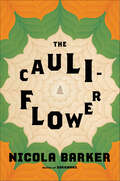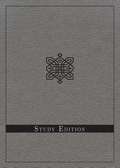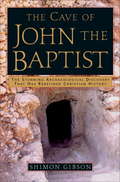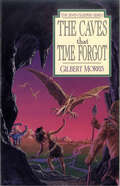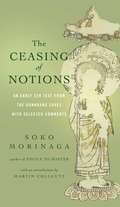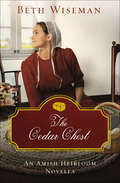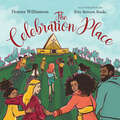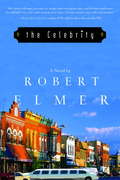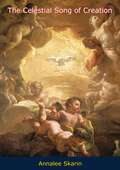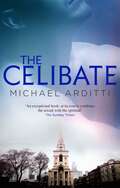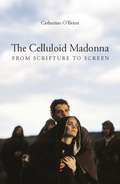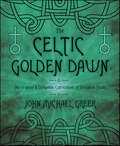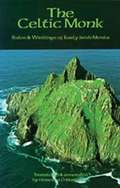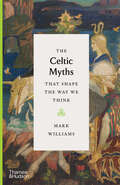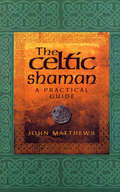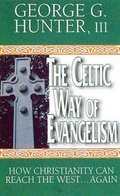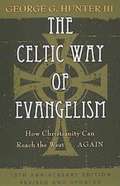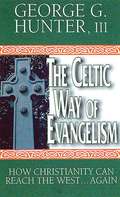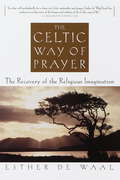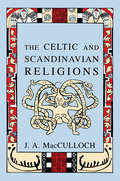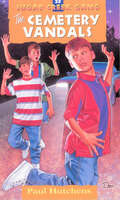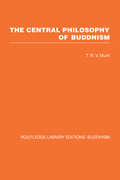- Table View
- List View
The Cauliflower: A Novel
by Nicola Barker“Maddening, funny, playful and beautiful…Barker has once again invigorated an old form -- the historical biographical novel -- through electric wit and sheer bedazzlement.”--The Washington PostTo the world, he is Sri Ramakrishna--godly avatar, esteemed spiritual master, beloved guru. To Rani Rashmoni, she of low caste and large inheritance, he is the brahmin fated to defy tradition. But to Hriday, his nephew and longtime caretaker, he is just Uncle--maddening, bewildering Uncle, prone to entering trances at the most inconvenient of times, known to sneak out to the forest at midnight to perform dangerous acts of self-effacement, who must be vigilantly safeguarded not only against jealous enemies and devotees with ulterior motives, but also against that most treasured yet insidious of sulfur-rich vegetables: the cauliflower. Rather than puzzling the shards of history and legend together, Barker shatters the mirror again and rearranges the pieces. The result is a biographical novel viewed through a kaleidoscope. Dazzlingly inventive and brilliantly comic, irreverent and mischievous, The Cauliflower delivers us into the divine playfulness of a twenty-first-century literary master.
The Causes, Evils, and Cures of Heart and Church Divisions Study Edition
by AbingdonFrancis Asbury (1745-1816) was born in England and brought Methodism to North America during forty-five years of ministry. Methodists grew in number from six hundred when Asbury started to over two hundred thousand people in the movement by the time of his death. As he worked with total dedication to reform the nation and spread scriptural, personal, and social holiness throughout the land, he preached, petitioned to abolish slavery, and promoted Sunday schools to teach children reading and mathematics. As a key founder of the American Methodist movement, Asbury observed that it took only a few years for division to emerge among the most passionate and zealous followers of the Wesleyan way. So he repurposed and abridged two earlier works to create The Causes, Evils and Cures of Heart and Church Divisions. This book was recommended for study to early Methodists as a spiritual cure for the human tendency to love self and ideas more than we love others: our colleagues, our neighbors, and our enemies. The study questions found throughout this book are suitable for cultivating spiritual formation within individuals and among a community. As you read about these causes and evils that divide our hearts from each other, nearly every individual will recognize the need for personal improvement in thoughts, words, and deeds. ows how we love ourselves and our ideas far more than we love our neighbors or our adversaries.
The Cave of John the Baptist: The First Archaeological Evidence of the Historical Reality of the Gospel Story
by Shimon GibsonThe first archaeological evidence of the historical reality of the Gospel story. From a historical point of view, the uniqueness of this cave is that it contains archaeological evidence that comes to us from the very time of the personalities and events described in the Gospels. For here is the largest ritual bathing pool ever found in the Jerusalem area, and found in the village where John the Baptist was born, showing unmistakable signs of ritual use in the first century AD. Also in the cave is the earliest ever Christian art, depicting John the Baptist as well as the three crosses of the crucifixion. By using the forensic techniques available to the modern archaeologist, Gibson and his international team have been able to draw information from the drawings, pottery, coins, bones, remains of ritual fire and pieces of cloth found in the cave and match these up with the contemporary literary sources. This is a unique opportunity to build up a picture of the very first Christians, how they lived and even what they believed. As Gibson writes:"By fitting together the new archaeological facts with the historical information available (and sometimes buried) in scholarly literature, I believe I am able to throw an amazing amount of light on the personality and mission of John the Baptist. Who was he? Where did he come from? What were his beliefs and what was the baptism all about?" From the Hardcover edition.
The Caves That Time Forgot (Seven Sleepers Series #4)
by Gilbert MorrisThe Dark Lord's power has spread to the mysterious Caves of Mondar. The Seven Sleepers are called to free the people there by teaching them the virtues of honor, dignity, and generosity.
The Caves That Time Forgot (Seven Sleepers Series #4)
by Gilbert MorrisThe Dark Lord's power has spread to the mysterious Caves of Mondar. The Seven Sleepers are called to free the people there by teaching them the virtues of honor, dignity, and generosity.
The Ceasing of Notions
by Soko Morinaga Venerable Myokyo-Ni Martin Collcutt Michelle BromleyAmong the writings from the Dunhuang Caves, discovered in the mid-twentieth Century, are the Zen equivalent of the Dead Sea Scrolls--ancient texts unknown for centuries. The Ceasing of Notions is one such text. It takes a unique form: a dialogue between two imaginary figures, a master and his disciple, in which the disciple tenaciously pursues the master's pity utterances with follow-up questions that propel the dialogue toward ever more profound insights. And these questions prove to be the reader's very own. Soko Morinaga brings alive this compact and brilliant text with his own vivid commentary. This volume also includes a generous selection from Morinaga's acclaimed autobiography, Novice to Master: An Ongoing Lesson in the Extent of my Own Stupidity.
The Cedar Chest: An Amish Heirloom Novella (Amish Heirloom Novellas)
by Beth WisemanDecades after inheriting her great grandmother&’s cedar chest, Emma Fisher decides to pry it open only to discover a beautiful love story in the form of letters between her great grandparents. But as Emma immerses herself in their story, family secrets are revealed, and she must decide whether to share them to preserve family history or honor her great grandparents&’ decision to leave them hidden.
The Celebration Place: God's Plan for a Delightfully Diverse Church
by Dorena WilliamsonChurch is more than just a building—it's a gathering of God's people to celebrate who he is and all that he has done. It's also where we learn about God's vision for justice and unity! Told in a delightful rhyme, this colorfully illustrated children's book also includes tools to help parents engage in conversation about the content.
The Celebrity
by Robert ElmerCaught Between a Charade and the Truth. Jamie D. Lane is many things: multi-talented, handsome--and the most sought-after pop star in the world. But there's one thing he isn't--happy. At the height of his singing career, a family tragedy stops him in his tracks. And in an effort to settle a private matter and put the past behind him, Jamie cuts his trademark blonde curls, assumes a new identity, and secretly slips away from his celebrity lifestyle and heads to the Pacific Northwest in cognito. But what he finds in small town Washington could open up Jamie's future--and change him forever. A teacher to inner city kids and former high school track star, Anne Stewart had once believed she could change the world. Then a near-fatal accident left her grappling with both the devastating effects of head injury and deep bitterness toward the drunk driver who crippled her. When a man she knows as "Joe Bradley" hits town, however, he unexpectedly helps to restore her self-confidence and passion for life. But when the scope of The Celebrity's deception becomes clear to Anne, will it be too much to forgive? Can The Celebrity Reveal His True Identity--Without Losing Everything?
The Celestial Song of Creation
by Annalee Skarin“Here is a record of glory, revealing the method of achieving the heights, the way to unfold understanding of the Almighty Truths of God.“If you would awaken your soul to the divine symphony of the Universe, follow the way of ‘overcoming,’ the Way Christ trod. The record of His Path, the eternal, inner truths of power and fulfillment are now open, the sacred, inner knowledge that has lain dormant and in the depths of your being.“Ludwig Van Beethoven, who had become deaf, humbly acknowledged that his Symphony No. 9 came to him directly from God, and that he merely transcribed it.“What is man’s soul? It is his true being, where God has placed a seed of Himself, and this seed contains the perfect answers to one’s outside problems and inner questioning. It is the source of all inspiration and contains the power of all achievement and happiness. The soul is the innermost being of man himself.“To contact the soul, one learns ‘to be still!’ This divine search fulfills man’s conquest of himself as he begins to live God’s laws. As one learns ‘to love God with all his heart, all his soul, all his mind, and all his strength,’ he begins to find the joy and the meaning of existence. The search is one that no man can make for another. It is a quest which each individual must undertake for himself. It is each individual’s own responsibility.”—Annalee Skarin
The Celibate
by Michael ArdittiThe first published novel by the award-winning, bestselling and acclaimed Michael Arditti'It is unusual to find an English first novel of such unflinching moral seriousness ... a varied and involving read' Gregory Woods, Times Literary Supplement'An exceptional book - at its core it combines the sexual with the spiritual' Sunday Times'An ambitious first novel, which traces the liberation of a human soul through a gradual revelation of the meaning of passion and the Passion' Candia McWilliam, Independent on SundayThe Celibate is the story of a young man with a mind full of God, but a heart closed to love. While studying at the theological college, he is confused by his feelings for a fellow ordinand and suffers a nervous collapse at the altar. His college principal sends him on a placement to London, where he enters an unfamiliar world of outcasts, down-and-outs, rent boys and religious fundamentalists.In increasing despair, he embarks on a journey through the world of Jack the Ripper, the devastation of the Great Plague and the mysteries of his own family. As the past and present come full circle, he finally understands the true meaning of Passion.This is an intelligent and emotive novel, potent with atmosphere and rich in ideas and insights. It employs a unique fictional structure which integrates the contemporary and the historical, the personal and the theological, the comic and the polemic in a revelatory way. On its initial publication, it was hailed as the debut of a major literary talent.
The Celluloid Madonna: From Scripture to Screen (Wallflower Press Ser.)
by Catherine O'BrienThe Celluloid Madonna is the first book to analyze the life of the Virgin Mary on screen from the silent era through to the present. For decades, Mary has caught the imagination of filmmakers from a range of religious backgrounds, whether Catholic, Protestant, Muslim, Marxist, or atheist, and film's intersection of theology and secular culture has inspired some of the most singular and controversial visions of this icon in cinema history. Focusing on the challenge of adapting Scripture to the screen, this volume discusses Cecil B. DeMille's The King of Kings (1927), Pier Paolo Pasolini's The Gospel According to St. Matthew (1964), Franco Zeffirelli's Jesus of Nazareth (1977), Jean-Luc Godard's Hail Mary (1984), Jean Delannoy's Mary of Nazareth (1994), Mel Gibson's The Passion of the Christ (2004), Catherine Hardwicke's The Nativity Story (2006), and Mark Dornford-May's Son of Man (2006).
The Celtic Golden Dawn: An Original & Complete Curriculum of Druidical Study
by John Michael GreerA century ago, Celtic groups descending from the famed Hermetic Order of the Golden Dawn pioneered a fascinating form of ceremonial magic invoking Pagan Celtic powers instead of relying on the more commonly used Judeo-Christian names and symbols. Those groups disappeared many decades ago, and their teachings were lost. But today, their legacy has been reborn.Respected occult author and Grand Archdruid John Michael Greer has re-created a complete magical system based on the Celtic Golden Dawn traditions. This new book provides students with a complete curriculum of Druidical magic and occult wisdom, including training in ceremonial magic, meditation, pathworking, divination, geomancy, and herbal alchemy, allowing self-initiation into the three degrees of Ovate, Bard, and Druid. Structured to resemble a long-lost correspondence course, The Celtic Golden Dawn presents a series of knowledge lectures, meditations, and rituals leading to mastery of the most important magical techniques.
The Celtic Monk: Rules and Writings of Early Irish Monks
by Uinseaan O MaidinIn the Early Middle Ages, the Irish temperament 'individualistic, poetic, and deeply loyal to family 'produced great and learned saints and a unique monastic literature. Before the Norman Invasion, the isolation of the island allowed the development of traditions quite different from those of the continent or Britain. The rules, maxims, litanies, and poems of early Irish monks convey the spirituality of the Isle of Saints in the sixth to eighth centuries.
The Celtic Myths that Shape the Way We Think
by Mark WilliamsA fresh and revealing look at the stories at the heart of Celtic mythology, exploring their cultural impact throughout history up to the present day. The Celtic Myths That Shape the Way We Think explores a fascinating question: how do myths that were deeply embedded in the customs and beliefs of their original culture find themselves retold and reinterpreted across the world, centuries or even millennia later? Focusing on the myths that have had the greatest cultural impact, Mark Williams reveals the lasting influence of Celtic mythology, from medieval literature to the modern fantasy genre. An elegantly written retelling, Williams captures the splendor of the original myths while also delving deeper into the history of their meanings, offering readers an intelligent and engaging take on these powerful stories. Beautiful illustrations of the artworks these myths have inspired over the centuries are presented in a color plates section and in black and white within the text. Ten chapters recount the myths and explore the lasting influence of legendary figures, including King Arthur, the Celtic figure who paradoxically became the archetypal English national hero; the Irish and Scottish hero Finn MacCool, who as “Fingal” caught the imagination of Napoleon Bonaparte, Johann Wolfgang von Goethe, and Felix Mendelssohn; and the Welsh mythical figure Blodeuwedd, magically created from flowers of the oak, who inspired W. B. Yeats. Williams’s mythological expertise and captivating writing style make this volume essential reading for anyone seeking a greater appreciation of the myths that have shaped our artistic and literary canons and continue to inspire today.
The Celtic Shaman
by John MatthewsProbably the oldest known spiritual discipline, shamanism is the timeless art of living in harmony with creation, providing a universal system to work with today, whatever our religion or spiritual affiliation may be. A reflection of a living tradition with a supremely practical approach to life, it teaches skills for living and ways to utilize latent abilities which we all possess. Celtic Shamanism derives from the native traditions of North-West Europe. The shamanic contribution of the Celts and their predecessors has been overlooked until recently, and is one of the last shamanic traditions to be explored. While it shares common elements with American, Australian and Siberian teachings, it derives entirely from Celtic source material. The Celtic Shaman offers a varied and easily followed plan of self-tuition for anyone interested in Celtic mythology and the Western mysteries.
The Celtic Way of Evangelism
by George G Hunter IIICeltic Christianity--the form of Christian faith that flourished among the people of Ireland during the Middle Ages--has gained a great deal of attention lately. George G. Hunter III points out that, while the attention paid to the Celtic Christians is well deserved, much of it fails to recognize the true genius of this ancient form of Christianity. What many contemporary Christians do not realize is that Celtic Christianity was one of the most successfully evangelistic branches of the church in history. The Celtic church converted Ireland from paganism to Christianity in a remarkably short period, and then proceeded to send missionaries throughout Europe. North America is today in the same situation as the environment in which the early Celtic preachers found their mission fields: unfamiliar with the Christian message, yet spiritually seeking, and open to a vibrant new faith. If we are to spread the gospel in this culture of secular seekers, we would do well to learn from the Celts. Their ability to work with the beliefs of those they evangelized, to adapt worship and church life to the indigenous patterns they encountered, remains unparalleled in Christian history. If we are to succeed in "reaching the West . . . again," then we must begin by learning from these powerful witnesses to the saving love of Jesus Christ.
The Celtic Way of Evangelism, Tenth Anniversary Edition: How Christianity Can Reach the West . . .Again
by George G. Hunter IIICeltic Christianity-the form of Christian faith that flourished among the people of Ireland during the Middle Ages- has gained a great deal of attention lately. George G. Hunter III points out that while the attention paid to the Celtic Christians is well deserved, much of it fails to recognize the true genius of this ancient form of Christianity. What many contemporary Christians do not realize is that Celtic Christianity was one of the most successfully evangelistic branches of the church in history. The Celtic church converted Ireland from paganism to Christianity in a remarkably short period, and then proceeded to send missionaries throughout Europe. North America is today in the same situation as the environment in which the early Celtic preachers found their mission fields: unfamiliar with the Christian message, yet spiritually seeking and open to a vibrant new faith. If we are to spread the gospel in this culture of secular seekers, we would do well to learn from the Celts. Their ability to work with the beliefs of those they evangelized, to adapt worship and church life to the indigenous patterns they encountered, remains unparalleled in Christian history. If we are to succeed in reaching the West . . . again, then we must begin by learning from these powerful witnesses to the saving love of Jesus Christ. This classic book on the power of indigenous evangelism has been thoroughly revised and updated, proving once again how much these ancient Christians have to teach anyone who seeks to spread the word of the gospel.
The Celtic Way of Evangelism: How Christianity Can Reach the West ... Again
by George G. Hunter IIIThe ancient movement known as Celtic Christianity can show us some ways forward in the twenty-first century.
The Celtic Way of Prayer
by Esther De WaalTo recover our Celtic roots is to reclaim a forgotten heritage, one that will deepen our prayer and enlarge our vision. This book shows how the Celtic way of praying drew upon its pre-Christian past as well as on the fullness of the Gospel, and how it touched not only the mind but also the heart and the imagination. Drawing on material not easily available to the ordinary reader, Esther de Waal unlocks a treasury that will stratle with its power and originality. The reader is introduced to early Irish litanies, to medieval Welsh praise poems, to the wealth of blessings that come from the oral tradition to make praying a part of daily living. The book has been updated to include a new Introduction and a complete new chapter on healing for today's world.
The Celtic and Scandinavian Religions
by J. A MacCullochThe author compares Celtic mythology and religion with the beliefs of early Scandinavian society. Vikings and Norsemen who raided British shores ruled parts of Britain for centuries. The religion of the Scandinavians was the same as the religious beliefs and practices of their fellow Teutonic and Germanic tribes, and their chief deities and religious rituals were like those of Teutonic people anywhere.
The Cemetery Vandals (Sugar Creek Gang Original Series #32)
by Paul HutchensWhen the boys discover filthy language painted on the bridge abutments, a hole in their rowboat, and Sarah Paddler's tombstone knocked over at the cemetery, the Sugar Creek Gang swings into action. A chase ensues when some of the gang find two of the vandals in Old Man Paddler's cabin. Can Bill Collins make it to the cave in time to trap them? See how God works everything out for good as the criminals are captured with the help of the Gang's arch enemy in The Cemetery Vandals.
The Cemetery Vandals (Sugar Creek Gang Original Series #32)
by Paul HutchensWhen the boys discover filthy language painted on the bridge abutments, a hole in their rowboat, and Sarah Paddler's tombstone knocked over at the cemetery, the Sugar Creek Gang swings into action. A chase ensues when some of the gang find two of the vandals in Old Man Paddler's cabin. Can Bill Collins make it to the cave in time to trap them? See how God works everything out for good as the criminals are captured with the help of the Gang's arch enemy in The Cemetery Vandals.
The Central Philosophy of Buddhism: A Study of the Madhyamika System (Routledge Library Editions: Buddhism)
by T R MurtiOriginally published in 1955. The Madhyamika philosophy is, in the author’s view, the philosophy which created a revolution in Buddhism and through that in the whole range of Indian philosophy. This volume is a study of the Madhyamika philosophy in all its important aspects and is divided into three parts: Historical: this traces the origin and development of the Madhyamika philosophy. The second part concentrates on a full and critical exposition of the Madhyamika philosophy, the structure of its dialectic, its conception of the Absolute and its ethics and religion. The last part of the book compares the Madhyamika with some of the well-known dialectical systems of the West (Kant, Hegel and Bradley) and undertakes a short study of the different absolutisms (Madhyamika, Vijnanavada and the Vedanta).
